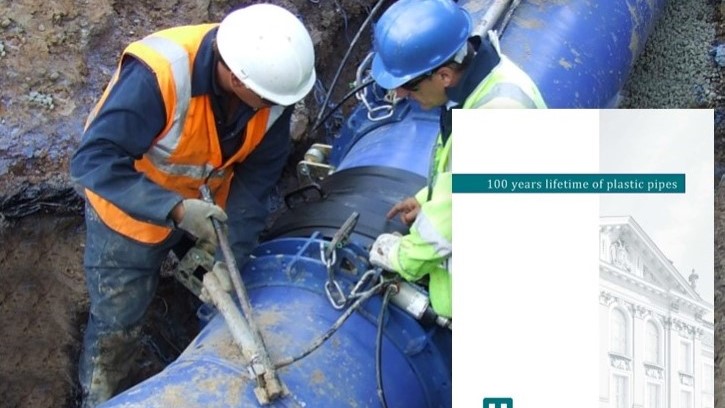A new meta-study on the service lifetimes of plastic pipes for pressure and non-pressure applications has confirmed through independent findings that safe service lifetimes can be expected to be well above 100 years.
The meta-study, called ‘100 years lifetime of plastic pipes,’ was commissioned by TEPPFA, the European Plastic Pipes and Fittings Association, and carried out by the Austrian Polymer Competence Centre. It is a statistical analysis based upon significant and independently verified research and findings from existing literature on the expected service lifetime of plastic pipes, and is detailed at Meta-study 100 years of lifetime of plastic pipes – TEPPFA
The study looked at pressure and non-pressure polyethylene, polypropylene and unplasticised polyvinyl chloride pipes, including both smooth and structured-wall pipes for the transportation of potable water, natural gas, sewerage and drainage waters. The analysis accounted for operational temperatures around the pipes of a maximum of 20°C, and assumed adherence to contemporary standards (EN, ISO and ASTM mainly) throughout the production, trenching and operational phases. The study excluded industrial pipe systems employed for conveying aggressive media, floor heating applications, and the use of non-virgin materials.
Based on a number of references, including scientific publications in peer-reviewed journals, protocols, reports, standards and conference presentations – most with dig-out studies of pipes operating for up to 50 years – the study also included 23 references (13 for pressure applications, 10 for non-pressure applications) with a clear statement of 100 years and more, using a variety of evaluation approaches.
Tests included the main lifetime estimation method for pressure pipes, which is the hydrostatic pressure test performed at different temperatures combining Arrhenius type extrapolations to application temperatures. For non-pressure pipes, stress relaxation tests at constant pipe deflections were featured, along with the Rate Process Method (based on junction stress tests to failure at various load and temperature conditions for corrugated pipes). Other tests are detailed in the meta-study report.
Reports of failures (in general) of either pressure or non-pressure plastic pipes were hardly found in any literature, other than by cases not following standard manufacturing or installation procedures. Significantly, no failure was found to be caused by material ageing.
Caroline Ayres of the BPF Pipes Group commented on the meta-study:
“It is clear from this significant study that where all steps in the process of design, manufacturing, trenching and operating conditions follow currently valid EN and ISO standards for plastic pipes, fittings, valves and their installation, safe service lifetimes can be expected to be well above 100 years. This provides welcome assurance to utility companies and water asset owners that their investments in plastic piping systems will last at least 100 years.”



